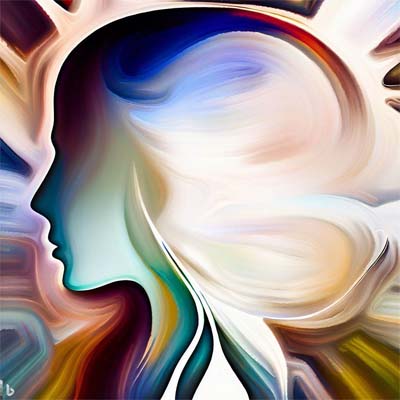Unraveling the Complexities of the Human Psyche: Exploring Its Multifaceted Aspects
Introduction:
The human psyche is a profound and intricate subject of study that encompasses the entirety of the human mind, encompassing thoughts, emotions, behaviors, and consciousness. It represents the intricate tapestry that defines our individuality and shapes our experiences, perceptions, and interactions with the world around us. In this article, we delve into the various aspects of the human psyche, exploring its multifaceted nature and shedding light on its complexities.
Consciousness and Self-Awareness:
At the core of the human psyche lies consciousness, the subjective awareness of our own existence and experiences. It is through consciousness that we perceive the world, form thoughts, and develop a sense of self. Self-awareness, a unique aspect of consciousness, allows us to reflect on our own thoughts, emotions, and actions, leading to introspection, personal growth, and the construction of our identities.
Cognitive Processes:
The cognitive processes of the human psyche encompass a broad range of mental activities, including perception, attention, memory, language, and problem-solving. Perception involves the interpretation and organization of sensory information, while attention determines our focus and selective awareness. Memory is a complex system that enables us to store, retain, and recall information, shaping our learning and decision-making abilities. Language, a quintessential human trait, allows us to communicate and express our thoughts and emotions, fostering social connections and cultural development. Problem-solving skills enable us to analyze challenges, devise strategies, and make decisions to navigate the complexities of life.
Emotions and Emotional Intelligence:
Emotions form an integral part of the human psyche, influencing our thoughts, behaviors, and overall well-being. Emotions range from basic ones like happiness, sadness, anger, and fear, to complex states such as love, empathy, and gratitude. Emotional intelligence refers to the capacity to recognize, understand, and manage our emotions effectively, as well as to perceive and empathize with the emotions of others. Developing emotional intelligence fosters emotional well-being, interpersonal relationships, and decision-making skills.
Personality and Individual Differences:
Personality encompasses the enduring patterns of thoughts, feelings, and behaviors that distinguish individuals from one another. Psychologists have proposed various theories to understand and classify personality traits, such as the Big Five personality traits (openness, conscientiousness, extraversion, agreeableness, and neuroticism). Personality traits influence our interactions, motivations, career choices, and overall life satisfaction.
Developmental Stages:
The human psyche undergoes dynamic changes throughout life, shaped by various developmental stages. From infancy to childhood, adolescence, adulthood, and old age, each stage brings distinct psychological challenges and milestones. Early experiences and relationships significantly impact our psychological development, shaping our attachment styles, self-esteem, and coping mechanisms. Understanding the intricacies of these developmental stages helps shed light on the formation and evolution of the human psyche.
Mental Health and Well-being:
Mental health encompasses a person’s emotional, psychological, and social well-being. Mental disorders, ranging from depression and anxiety to schizophrenia and bipolar disorder, can profoundly affect the human psyche, causing distress and impairing daily functioning. Promoting mental health and well-being involves psychological interventions, therapy, self-care practices, and societal support to foster resilience, coping skills, and emotional balance.
Social Psychology and Interpersonal Relationships:
The human psyche is inherently social, and our interactions with others significantly impact our psychological well-being. Social psychology explores how individuals perceive, influence, and relate to others, investigating topics such as social cognition, conformity, persuasion, prejudice, and attraction. Understanding social dynamics and building healthy interpersonal relationships are essential for our emotional fulfillment, sense of belonging, and overall life satisfaction.
Conclusion:
The human psyche is a complex and fascinating domain of study, encompassing a myriad of interconnected aspects. From consciousness and cognition to emotions, personality, and social interactions, it shapes our experiences, perceptions, and understanding of the world. Unraveling the intricacies of the human psyche enhances our self-awareness, empathy, and overall well-being, fostering personal growth, resilience, and meaningful connections with others. Continued exploration and research in this field offer a deeper understanding of what it means to be human and provide valuable insights into optimizing our psychological health and thriving in an ever-evolving world.
Hits: 90
